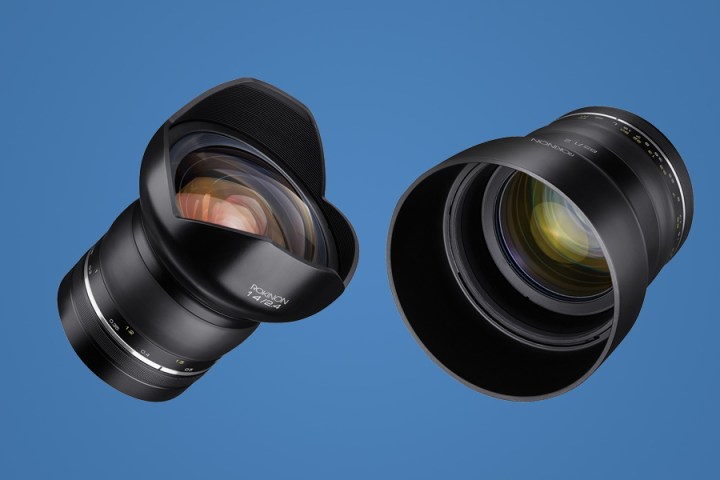
Rokinon is kicking off the new series with two different focal lengths, an SP 85mm f/1.2 and the SP14mm f/2.4, both designed for Canon full frame cameras but also compatible with APS-C shooters with a higher focal length. Both new lenses are manual focus only but designed to match the performance of high-resolution sensors.
The high-end lens line will be built with aluminum alloy for enhanced durability — that heavy duty construction puts the 85mm at just over two pounds (37 ounces) and the wide angle at 27.9 ounces.
The standard focal length 85mm has the widest aperture of the two at f/1.2, making it a likely option for portrait photographers. The lens is constructed with 10 glass elements and can focus as close as 31.5 inches from the front of the lens.
Rokinon’s latest wide angle lens has a slightly narrower f/2.4 aperture but an ultra-wide shooting perspective. The shorter 14mm lens uses 18 glass elements in 14 groups, focusing just under a foot from the front of the lens at 11.02 inches. Unlike the 85mm lens, the 14mm SP lens has a petal-shaped hood that is built in, while the 85mm’s hood is removable.
Priced at $1299 for both lenses, the Rokinon SPs join a growing number of high-end primes that boast better performance with high-resolution sensors but lack autofocus capabilities. While manual focus is sometimes preferred by videographers and for certain still scenarios, Rokinon (and several other lens manufacturers) seem to bank on the idea of quality over that autofocus.



